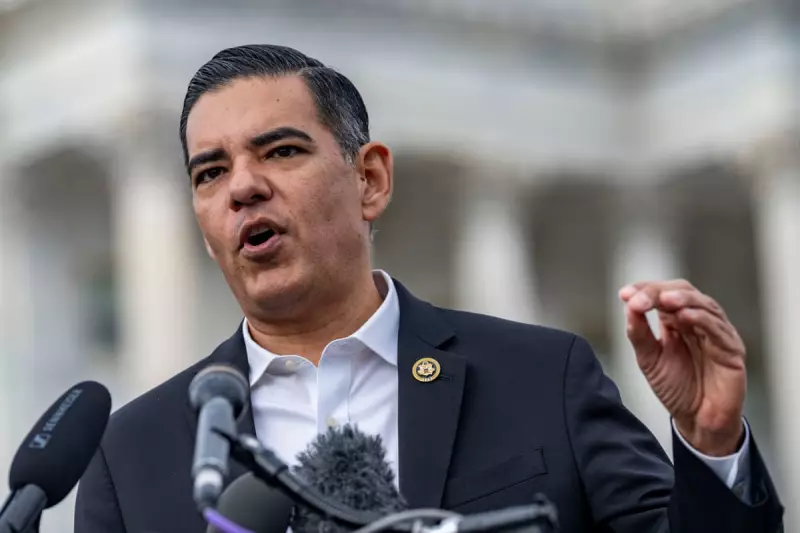
Two prominent Democratic lawmakers have publicly condemned Prince Andrew's "silence" after he failed to respond to their request for testimony in the ongoing congressional investigation into Jeffrey Epstein's sex trafficking network.
Mounting Pressure on Royal Cooperation
Robert Garcia, the ranking member of the House oversight committee, and Suhas Subramanyam, another panel member, issued a strong statement on Friday criticising the Duke of York's lack of response to their deposition request. The deadline they had set for Prince Andrew to respond passed on Thursday without any communication from the former royal.
"Andrew Mountbatten-Windsor's silence in the face of the Oversight Democrats' demand for testimony speaks volumes," the lawmakers declared. They emphasised that documents obtained by the committee, many originating from Epstein's estate, along with testimony from abuse survivor Virginia Giuffre, "raise serious questions" the ex-prince "must answer, yet he continues to hide".
The Democrats reaffirmed their commitment to pursuing justice, stating: "Our work will move forward with or without him, and we will hold anyone who was involved in these crimes accountable, no matter their wealth, status, or political party. We will get justice for the survivors."
Legal Limitations and Political Complications
Despite their strong words, Democrats on the investigative committee face significant obstacles in compelling Prince Andrew to cooperate. As the minority party, they lack the authority to issue subpoenas, and Republican chair James Comer has remained silent on whether he would take such action against the former prince.
Even if a subpoena were issued, legal experts note that Prince Andrew - who has consistently denied any wrongdoing - could avoid penalties for non-compliance simply by avoiding travel to the United States.
The political landscape surrounding the investigation has grown increasingly complex. The lawmakers' statement came shortly after Donald Trump signed the Epstein Files Transparency Act into law, which mandates that attorney general Pam Bondi release documents related to the government's handling of Epstein's case within 30 days.
Trump, who previously associated with Epstein, initially attempted to block the legislation but relented when it became clear it would pass the House of Representatives. The new law does include exemptions for documents that could compromise national security or ongoing investigations.
Document Disclosure Controversy
In a separate development, Robert Garcia wrote to Attorney General Bondi on Friday expressing concerns about potential political interference. "Politically motivated investigations are not a legitimate justification for withholding or redacting records" under the newly passed legislation, Garcia asserted.
He echoed concerns raised by Republican senators about the possibility that President Trump might "attempt, on dubious legal grounds, to exploit a provision which allows DoJ to withhold information relevant to ongoing investigations."
The justice department previously turned over more than 33,000 documents to the committee in September in response to a subpoena issued in August, though most were already publicly available. According to sources familiar with the matter, the justice department is "sitting on a mountain of information" potentially totaling 300 gigabytes of files, including interview transcripts, court documents, emails, and records from both the 2008 Florida investigation that led to Epstein's guilty plea and the 2019 sex trafficking case that resulted in his arrest.
The recent passage of the Epstein Files Transparency Act follows months of congressional pressure that began in July when the justice department and FBI released a memo stating they had no further information to share about Epstein's activities, while confirming his death was a suicide despite persistent conspiracy theories.





